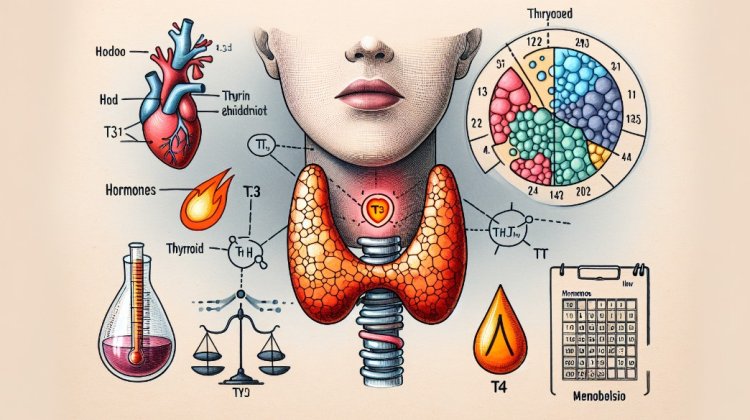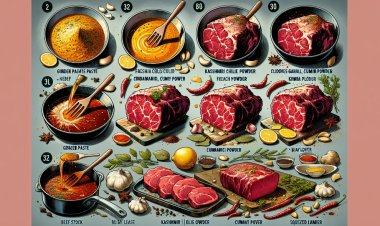Understanding Hypothyroidism: Causes, Symptoms, and Solutions
Tame the thyroid mystery! Unravel the causes, symptoms, and effective solutions for hypothyroidism. Regain control of your health with this comprehensive guide.

The Basics of Hypothyroidism
Did you know that one in every ten Indians suffers from thyroid issues? That's a staggering 120 million people. Hypothyroidism, in particular, affects a large percentage of the population, with women being more susceptible than men. So, if you're a young girl, it's important to educate yourself about hypothyroidism, as it may impact you or your loved ones in the future.
The Thyroid Gland and Metabolism
Hypothyroidism is characterized by an underactive thyroid gland, which produces two key hormones known as T3 and T4. These hormones play a crucial role in regulating metabolism, body temperature, energy utilization, heartbeat, and calorie burning. When there is a deficiency of these hormones, it can lead to a slower metabolism, causing weight gain and various long-term health issues.
The Impact of Hypothyroidism
Hypothyroidism can have a significant impact on an individual's overall well-being. Apart from weight gain, it can also lead to depression, mood swings, irregular menstrual cycles, and other long-term complications such as heart disease, infertility, joint pain, and obesity.
The Role of Diet and Exercise
Many lifestyle diseases, including hypothyroidism, can be managed by making changes to your diet and exercise routine. However, it's important to note that not all cases of hypothyroidism can be resolved through lifestyle changes alone.
Dietary Recommendations
Include foods high in these nutrients to help improve your condition if iodine and iron deficiency is the root cause of your hypothyroidism. Seafood, seaweed, iodized salt, red meat (for non-vegetarians), beans, and dry fruits are excellent sources of iodine and iron.
Goitrogens: Foods to Avoid
Goitrogens are substances found in certain foods that interfere with the production of T3 and T4 hormones. If you have hypothyroidism, it's advisable to avoid foods such as cabbage, cauliflower, mustard greens, radishes, and broccoli, as they contain goitrogens that can worsen your condition.
Types of hypothyroidism
There are two main types of hypothyroidism, each requiring a different approach to management:
1. Diet-Fixable Hypothyroidism
The most common type of hypothyroidism can be improved through dietary changes and exercise. Iodine and iron deficiency are common causes of it. By following a diet rich in iodine and iron, individuals with this type of hypothyroidism can improve their hormone production and metabolism.
2. Genetic Hypothyroidism
The second type of hypothyroidism is genetic and involves the body producing antibodies against the thyroid gland. This leads to a decrease in hormone production and metabolism. In such circumstances, a doctor's prescription for medication is necessary to effectively manage the condition.
The Importance of Exercise
Regular exercise is crucial for maintaining good overall health, including a healthy thyroid. Engaging in physical activity can help boost metabolism, burn calories, and prevent hormonal imbalances. By adopting an active lifestyle, the risk of developing thyroid problems later in life can be significantly reduced.
Frequently Asked Questions (FAQs)
1. How common is hypothyroidism?
In India, one in every ten individuals suffers from thyroid issues, with hypothyroidism being the most prevalent form.
2. Can hypothyroidism be cured with diet alone?
In some cases, hypothyroidism caused by iodine and iron deficiencies can be improved by making dietary changes. However, genetic hypothyroidism requires medication along with lifestyle modifications.
3. What are the symptoms of hypothyroidism?
The common symptoms of hypothyroidism include sudden weight gain, difficulty losing weight, swelling in the neck, depression, mood swings, and irregular menstrual cycles.
4. Are there any foods to avoid if you have hypothyroidism?
Avoiding goitrogenic foods such as cabbage, cauliflower, mustard greens, radishes, and broccoli is advisable for individuals with hypothyroidism to prevent further hormone disruption.
5. Can exercise help manage hypothyroidism?
Yes, engaging in regular exercise can help maintain a healthy metabolism, prevent weight gain, and improve overall thyroid function.
6. Is hypothyroidism a lifelong condition?
Hypothyroidism can be managed effectively with the right treatment, lifestyle modifications, and regular check-ups. It is not necessarily a lifelong condition if managed properly.
Remember, hypothyroidism is a common issue, and there is no need to be alarmed. By staying informed, seeking medical advice when necessary, and taking care of your diet and exercise routine, you can manage this condition and lead a healthy life.
Until next time, stay fit and healthy!



 admin
admin 










